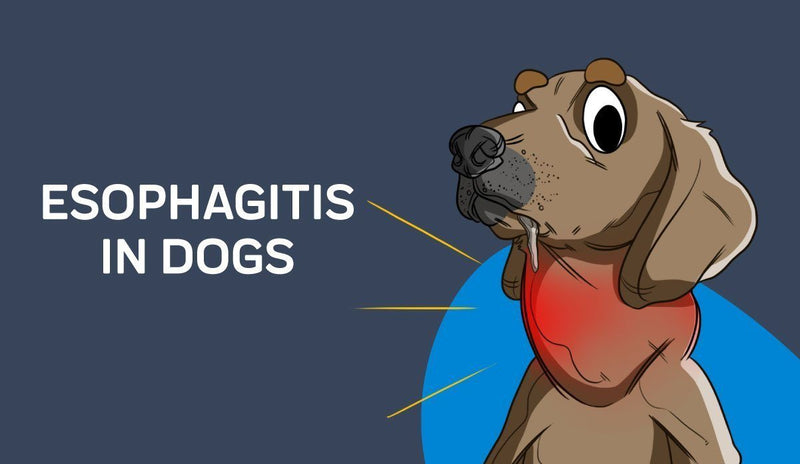
We all have our preferences and soft spots for particular dog breeds. It can start with something as simple as the family dog we grew up with stealing our affection forever, locking us into an affinity for that breed and that breed only for the rest of our lives. Maybe we presume particular personality traits of a certain breed. Or maybe we just have an affection toward a specific breed because we’ve picked it out as the best looking of the bunch. Any and all of these things can carry equal weight in picking out the next pup we’re going to bring home, whether it’s a rescue or we’re going directly to a breeder.
Of course, one major factor many future dog owners take into consideration and choose to do heavy research on is understanding the health conditions and common complications that come along with dog breeds. A higher risk of health problems means a greater commitment to time and care for your dog and more importantly, a greater risk of potential heartbreak in the future.
To the contrary, here’s a list of dogs that are well known for being some of the healthiest breeds:
Mixed Breeds
This one might be counterintuitive but apparently, mixed breed canines have lower risks of inbreeding, clearing up a laundry list of common health complications.
“A recent study showed that mix breed dogs were significantly less likely to develop ten genetically based diseases, including some types of heart disease, musculoskeletal problems, allergic skin disease, and hyperthyroidism,” says Jennifer Coates, DVM in Fort Collins, Colorado and veterinary advisor to petMD.
This is no hard and fast rule, of course, as some mixtures of breeds will definitely bring its problems. Nonetheless, if you adopt a mixed breed dog it’s not a bad idea to have them tested for possible genetic diseases. This will give you a good reference for the best preventative care you can offer your mixed breed pup.
Labradoodle
A popular dog through breeders, the first thing you’ll notice about the Labradoodle is its soft and unmistakable coat. Sure enough, they’re actually well known for having relatively few health problems related to that coat, as well as their skin and even bone-related complications.
Australian Shepherd
An active breed, Australian Shepherds are perfect outdoor work dogs that typically live anywhere from 12 to 15 years. Australian Shepherds also have few bone-related injuries as well as conditions related to their coat and their skin.
They’re also fairly low-maintenance as far as grooming goes, just be sure you’re getting them plenty of regular exercise.
Border Collie
If you could think of a Border Collie like a well-tuned human athlete, you could ponder how their active lifestyle keeps them strong and energetic well into their later years. And “advances in DNA testing have made it easier to control the relatively few minor genetic conditions known to affect border collies,” according to Cesar Milan. This is a dog that needs and wants plenty of attention, exercise, and time outdoors, but when they are properly cared for they tend to live around 14 years.
Chihuahua
Chihuahuas can live as long as 18 years, well past the typical lifespan of most other types of dogs. They’re considered to be the smallest breed of dog overall and don’t require much in terms of needing to be taken out for long walks or getting a ton of exercise due in part to their small stature. In fact, you’ve noticed a lot of people simply stuff them in a handbag and bring them along shopping and on daily errands. All this is due to their small size, and if taken care of well enough some can live for a full 20 years.
Havanese
Havanese tend to live longer than the average breed, typically around 14 years. They’re small but with a sturdy build.
Siberian Husky
The Siberian Husky is one of the prettiest dogs in the world and well-known as a hard-working, strong pack breed. They’re fairly active dogs that do tend to run into problems with things like progressive retinal atrophy, hypothyroidism, and cataracts later in life.
You’ll notice each breed here points out different advantages and strengths in leading a healthy (and hopefully long) life. Many people often associate the idea of “healthiest” dog breeds with “longest living,” which isn’t necessarily the case. It’s important to keep in mind that no breed is going to ensure a fully healthy dog immune to any diseases or complications. Every breed has its common illnesses and therefore require care specified to their genetic predispositions. The dog you choose should really just provide an outline for the proper care, the diet, and kind of exercise you’ll commit to giving them throughout their lifetime, and how well you take care of them will naturally play a major role in just how many years you get to care of them. Routine checkups and a healthy diet are a must no matter what type of dog you bring home. And of course, plenty of love. Generally speaking, smaller breeds tend to have longer lifespans, like the Maltese, the beagle, and the Chihuahua. While most canine breeds are expected to live between 10 and 12 years typically, the Maltese, the Beagle, the Australian shepherd, the Shih Tzu, and the Lhasa apso all have an average lifespan of 15 years, significantly longer than the number of years many other breeds are expected to live. Meanwhile, the Cockapoo — a cross between a Cocker Spaniel and a Poodle — Jack Russell Terriers, and the Toy Poodle (all poodle breeds are considered generally healthy and expected to live long lives) tend to live about 16 years. And topping out the list for dogs with the longest life expectancy is the Chihuahua at around 17 years and longer and the New Guinea singing dog, which has an astonishing average lifespan of around 18 years, although this unique dog is very rare, with only about 100 of them living in captivity according to Cesar Milan.

















